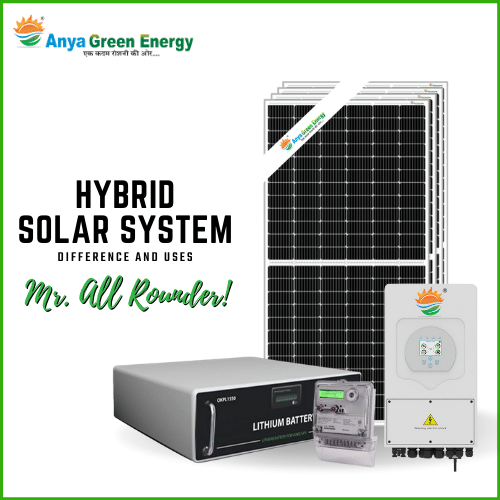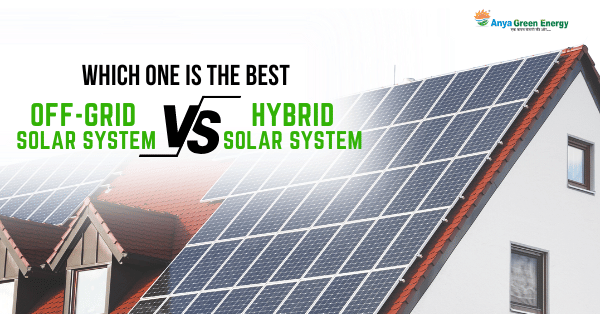HYBRID SOLAR SYSTEM FOR CHIPS FACTORY
In today’s dynamic world, the demand for chips and semiconductor products has skyrocketed. As the heart of the electronics industry, chips factories are known for their energy-intensive operations. However, to meet these rising demands while addressing environmental concerns, many chips factories are turning to hybrid solar systems. In this blog, we will explore why hybrid solar systems are becoming increasingly popular for chips factories, the importance of adopting this technology, and the multitude of benefits it offers.
HYBRID SOLAR SYSTEM FOR CHIPS FACTORY :

Why choose a hybrid solar system for chips factory ?
The chips manufacturing process involves intricate and energy-intensive operations, including cutting-edge fabrication processes and climate control systems. To ensure continuous production while minimizing the carbon footprint, chips factories are now opting for hybrid solar systems.
Energy Stability: Hybrid solar systems provide chips factories with energy stability. The sun’s energy is a consistent and dependable source, reducing the factory’s reliance on traditional grid electricity, which is subject to fluctuations and potential disruptions.
Environmental Responsibility: The chips industry recognizes the importance of sustainability. By harnessing the power of the sun, hybrid solar systems significantly reduce the factory’s greenhouse gas emissions, aligning with global efforts to combat climate change.
Cost Efficiency: Chips factories are energy-intensive, resulting in substantial electricity bills. Hybrid solar systems not only reduce energy costs by generating free electricity but also often qualify for government incentives and tax credits, making them a financially sound investment.
Importance of hybrid solar system for chips factory
The adoption of hybrid solar system for chips factory is crucial for several reasons that have a profound impact on the industry and the environment.
Sustainable Growth: Sustainable practices are no longer optional; they are imperative for the long-term growth of any industry. Hybrid solar system for chips factory to operate more sustainably, reducing their environmental impact and ensuring future growth.
Energy Security: Uninterrupted power is critical for chips factories. A hybrid solar system with battery storage ensures continuous operations during power outages, safeguarding production and preventing costly disruptions.
Compliance with Regulations: Governments worldwide are implementing stringent environmental regulations. Hybrid solar systems help chips factories meet these requirements by reducing emissions and promoting cleaner energy practices.
Benefits of hybrid solar system for chips industry
The adoption of hybrid solar system for chips factory offers a multitude of benefits, addressing both environmental and financial concerns.
Substantial Cost Savings: Hybrid solar systems significantly reduce electricity bills, offering substantial long-term cost savings. The return on investment (ROI) is often impressive, making it a financially sound decision for chips factories.
Reduced Environmental Impact: Chips manufacturing is energy-intensive and can be environmentally taxing. Hybrid solar systems reduce the factory’s carbon footprint, demonstrating a commitment to environmental stewardship.
Energy Independence: By relying on solar energy, chips factories gain energy independence and can stabilize operational costs. This autonomy from grid electricity price fluctuations is especially valuable for budget planning.
Enhanced Reputation: Adopting sustainable energy practices enhances a chips factory’s reputation and appeals to environmentally conscious customers and partners, potentially opening new business opportunities.
Long-Term Sustainability: The sun is an abundant and renewable energy source. By embracing hybrid solar system for chips factory secure a long-term, sustainable energy solution that benefits both their operations and the planet.
Scalability: Hybrid solar systems are scalable, allowing chips factories to expand their solar capacity as needed to meet growing demands.
The adoption of hybrid solar system for chips factories is not just a trend; it’s a strategic move towards sustainability, cost savings, and environmental responsibility. As the chips industry continues to evolve and expand, it is crucial to adopt green energy solutions that align with global sustainability goals.
Hybrid solar systems offer energy stability, cost efficiency, and environmental responsibility. Chips factories that embrace this technology not only secure their energy future but also contribute to a cleaner and more sustainable world. In a world where environmental responsibility and cost efficiency are paramount, hybrid solar systems for chips factory is an investment in a brighter, more sustainable future for the industry and the planet. The choice is clear: the future of chips manufacturing is indeed bright, thanks to the adoption of hybrid solar systems.


